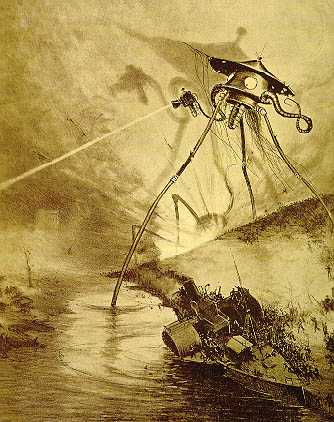
From Maria Temming at Science News:
If alien microbes crash-land on Earth, they may get a warm welcome.
When people were asked how they would react to the discovery of extraterrestrial microbial life, they give generally positive responses, researchers reported at a news conference February 16 at the annual meeting of the American Association for the Advancement of Science.
This suggests that if microbial life is found on Mars, Saturn’s icy moon Enceladus (SN: 5/13/17, p. 6) or elsewhere in the solar system, “we’ll take the news rather well,” said Michael Varnum, a social psychologist at Arizona State University in Tempe. What’s more, the tone of news reports announcing potential evidence for intelligent aliens suggests people would welcome that news, too.
No surprise there. The only puzzle is why various figures who cluster around NASA invent and circulate the idea that religious people, in particular, are likely to have a problem with the idea that we are not alone in the universe. That’s never been true. For example, medieval thinkers believed that there might indeed be other inhabited worlds and the great medieval poet Dante based his cosmology on the idea. Here on Earth, it was not clear to early Christians, for example, whether or not fauns (or satyrs or centaurs) really existed. But the possibility hardly sparked serious doubt about the Gospel. The problem, in all cases, wasn’t lack of belief or acceptance but lack of evidence.
The notion of a vast, pitiless void is actually modern.
And what if the aliens were intelligent? “If you find intelligent life elsewhere, [you] know that you’re not the only kid on the block,” says Seth Shostak, an astronomer at the SETI Institute in Mountain View, Calif. Knowing that human intelligence isn’t so special after all could provoke a much different emotional response than finding mere microbes “like pond scum in space,” Shostak says. More.
Shostak is clutching at straws. Why would encountering intelligent aliens cause us to think that “human intelligence isn’t so special after all”? It would still be special. It just wouldn’t be unique.
It is probably useless to suggest that these people go back and read the 20th-century Christian epic, The Lord of the Rings, which features many types of intelligent beings. They know they can probably get a good many study grants, conference, and books out of keeping the idea that there is a problem going – mainly among themselves and their peers. But the myths they market probably lead to more intolerance for persons of other views.
See also: Study: We would be cool with finding aliens
New book: How will religions deal with extraterrestrial life?
NASA religion advisor cancels interview with Suzan Mazur
Suzan Mazur: NASA, tax dollars, space aliens, and religion… Of course, it’s yet to be determined that most religious people have much invested in the matter one way or the other, relative to their irreligious neighbours.
Guardian: Will religion survive when the space aliens land?
Kirk Durston: Would ET life doom atheism?
Would the discovery of ET change ethics? Much of this is pretty specialized but to the extent that basic morality is linked with reason, ETs smart enough to get here or get found were smart enough not to have all killed each other off first.
Religion and ET: What’s wrong with science writing today